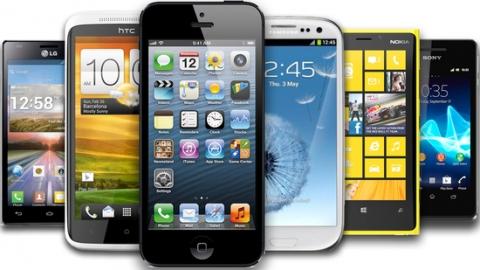Business Spectator 9 November 2012
The introduction of smartphones has been a catalyst for the innovative use of technology to bring business and customers closer together. With Australian start-ups competing on the international stage to make the most of the smartphone revolution, they certainly have what it takes to give their well-funded overseas rivals a run for their money.
The rise of location-based advertising
Location based advertising is one of the key avenues for conecting businessess with propspective customers, armed with their smartphones and on the lookout for bargains. The location based concept has been with us for many years, Google Maps was one of the most successful of the early entrants and is still a category leader that many of us rely upon for directions.
Google Maps provided an opportunity for business to register their location on the maps and in an associated searchable directory.
Recently, Apple launched a map application with the introduction of iOS 6. Apple identified that Google Maps was an important application utilised regularly by nearly all smartphone users.
Apple decided to introduce a competing map product on Apple iOS products to increase revenue.
However, Google Maps is a benign application that relies upon a smartphone user opening the map application to find businesses.
It wasn't long before innovators identified that smartphone users wanted to be told about specials being offered by businesses and also to be told about specials being offered nearby.
Groupon quickly entered this area by providing a platform for businesses to offer time limited specials directly to customers. Through Groupon a business can offer a special deal on a product or service and customers can sign on to the deal and get a coupon that can be displayed at the business when the customer goes to purchase the product or service.
Groupon also utilises social media to propagate deals and customers assist with this process by "sharing, liking and twittering" about a deal.
Australia’s answer to Groupon
A further innovation has been introduced by the Australian smartphone application myPype which utilises the smartphone's internal GPS to identify the phones location and then to push product and service specials offered by businesses up to 25 km from the phone using on screen messages.
myPype fully utilises technology including on screen messages, real time location based advertisements, use of social media, directions to businesses offering specials and a more traditional fee structure for business where a flat fee is charged per month rather than the percentage of sales adopted by competitors.
The next big innovation will be the use of information collected about the habits of people that use applications like myPype and Groupon to identify products and services that closely match with their buying habits.
This is known as "targeted marketing" and the data collected is called "Big Data".
Over time the information collected about the millions of people using smartphone applications to find and buy products and services will grow into a size that is hard to imagine today. Data mining techniques are being developed today to provide companies with key information about their customers purchasing habits.
Smartphone users already see their phones as an important tool that provides access to work and entertainment capabilities. Australians have embraced the smartphone revolution.
But what about privacy and security?
Innovative companies like myPype are competing with international companies that have greater access to venture capital and will therefore be looking to earn revenue from every aspect of their business.
Already Australia has quite stringent privacy and security legislation by world standards, however, there are areas that need improvement.
The information captured by product and service marketing companies about their customers will become very valuable over time and there will be the temptation to sell this information.
The advent of 'Big Data' increases privacy and security concerns and has yet to be adequately addressed by the government.
While we wait for legislation to catch up, it is important to be aware of your rights and to check how your data will be used before signing up with a smartphone based marketing application.
We should expect more innovation by Australian companies and if myPype is an example of the innovation being introduced by Australian entrepreneurs then Australia should be satisfied to know that we're not being left behind in the smartphone revolution.
Mark Gregory is a Senior Lecturer in Electrical and Computer Engineering at RMIT University





